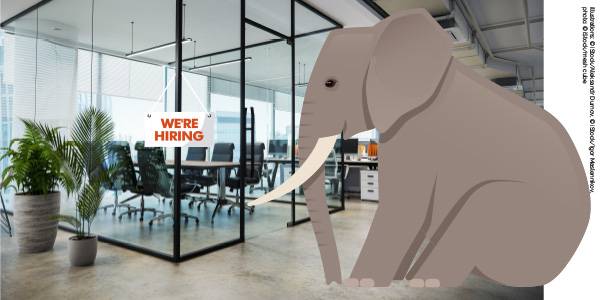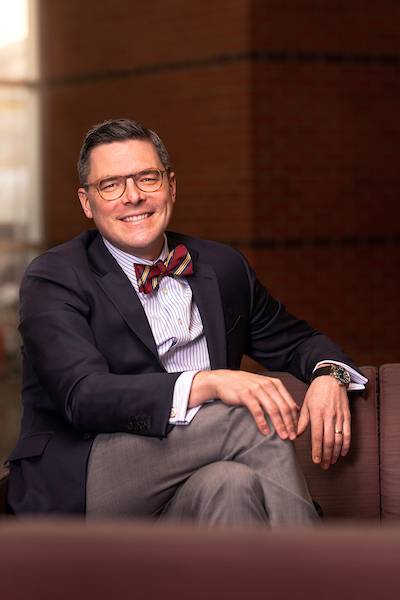It’s Past Time to Rethink 150
October 13, 2023
by Andrew Brajcich, CPA, JD, LLM

In my role as chair of the WSCPA Board of Directors, I’ve been learning about professional issues on the national scene, particularly the CPA pipeline shortage. I am hopeful that after the Washington State Board of Accountancy (WBOA) meeting on October 20, our state will be well on its way to having the broadest window to pass all four sections of the CPA exam. During its October rule-making meeting, the WBOA will be accepting public input on a rule change that would grant exam candidates 36 months to complete the CPA exam. The WBOA may take final action during this meeting as well. Expanding this window is one of many steps needed to reduce unnecessary barriers to entry into our profession and help with the CPA pipeline shortage.
There are many barriers that may deter students from entering and remaining in the profession. The one I continually hear about, from our members and from articles and studies on the subject,
is the 150-credit hour rule. Our fellow CPAs in Minnesota took a bold step in January of this year and offered an alternative pathway to the profession. The Minnesota Society of CPAs introduced legislation that provides for CPA licensure once candidates have earned 120 credit hours and have completed additional work experience. South Carolina soon followed suit. This proposed legislation would not eliminate the 150-credit hour route to CPA, rather it offers an additional, alternative option—a pathway that is already offered to international candidates in some circumstances. Some of our finest professionals today were licensed with only 120 credit hours, including CLA CEO Jen Leary, who is among the increasing voices who are asking, “Why 150?”
Arguments in favor of maintaining the status quo seem to be evolving. A position I hear often is that we are a learned profession (which we are) and the additional credits make us akin to the medical or legal professions. Yet those professions have very specific educational requirements, e.g., medical school, while CPA candidates can obtain their extra 30 credits in any subject. Favorite classes among some of my students are not from the accounting or business department; they are scuba diving and bowling. While these classes may be beneficial for personal and even professional development, I fail to see the merit in requiring them for a future CPA, particularly given our current talent shortage. It’s also worth noting that the legal profession offers a pathway to practicing law without going to law school. In Washington, the Law Clerk Program combines work and study with an experienced lawyer or judge over a four-year period. Clerks are then eligible to take the bar exam and become licensed as attorneys.
Similarly, for several years licensure has been under threat from both sides of the aisle in various statehouses. Conservatives prefer deregulation and progressives want to increase access. Proponents of the 150-credit hour rule contend that more education protects us from these threats. If this threat remains, I think we need a better counterpoint than a requirement to take any 30 college credits regardless of whether they are related to accounting or business.
When Minnesota introduced their legislation, discussion quickly turned to substantial equivalence. If a state were to allow for licensure at 120-credit hours, CPA licenses from that state will no longer have substantial equivalence in other states. This will mean CPAs licensed in that state would not be able to practice in other states. That’s scary. Especially given the remote work situations these days.
We as a profession define substantial equivalency. I think a lot of CPAs would admit they learned more on the job during their first few years than in their fifth year of college, even when they took more accounting coursework. For example, we as a profession can decide that CPAs with 120-credit hours and additional years of work experience are substantially equivalent to CPAs with 150-credit hours and less work experience. We’ve done it before with professionals like 120-credit hour CLA CEO Jen Leary when her license was grandparented in. We do it today with some professionals who were educated outside the US. The reality is that regulators in every jurisdiction need to agree, and statutes or rules will need to be changed.
There is seemingly more work to be done and fewer CPAs to do it. Firms are desperate. We’ve held meetings, and forums to address this issue, but none have addressed in a meaningful way what I see as the elephant in the room: the 150-hour self-inflicted wound. Larger firms are no longer turning to the proposed solutions, rather, they are turning to non-CPAs, both domestically and overseas, to get the job done. Smaller firms will someday do the same.
It’s time to seriously consider alternative pathways that can address the body of knowledge needed to succeed as a CPA and make the profession more attainable and desirable. It’s not the only step that needs to be taken, but I think it is an obvious one.

Chair of the WSCPA Board of Directors, Andrew Brajcich, CPA, JD. LLM, is the Jud Regis Endowed Chair of Accounting, Graduate Accounting Director, and Professor of Accounting at Gonzaga University. You can contact Andrew via email.
